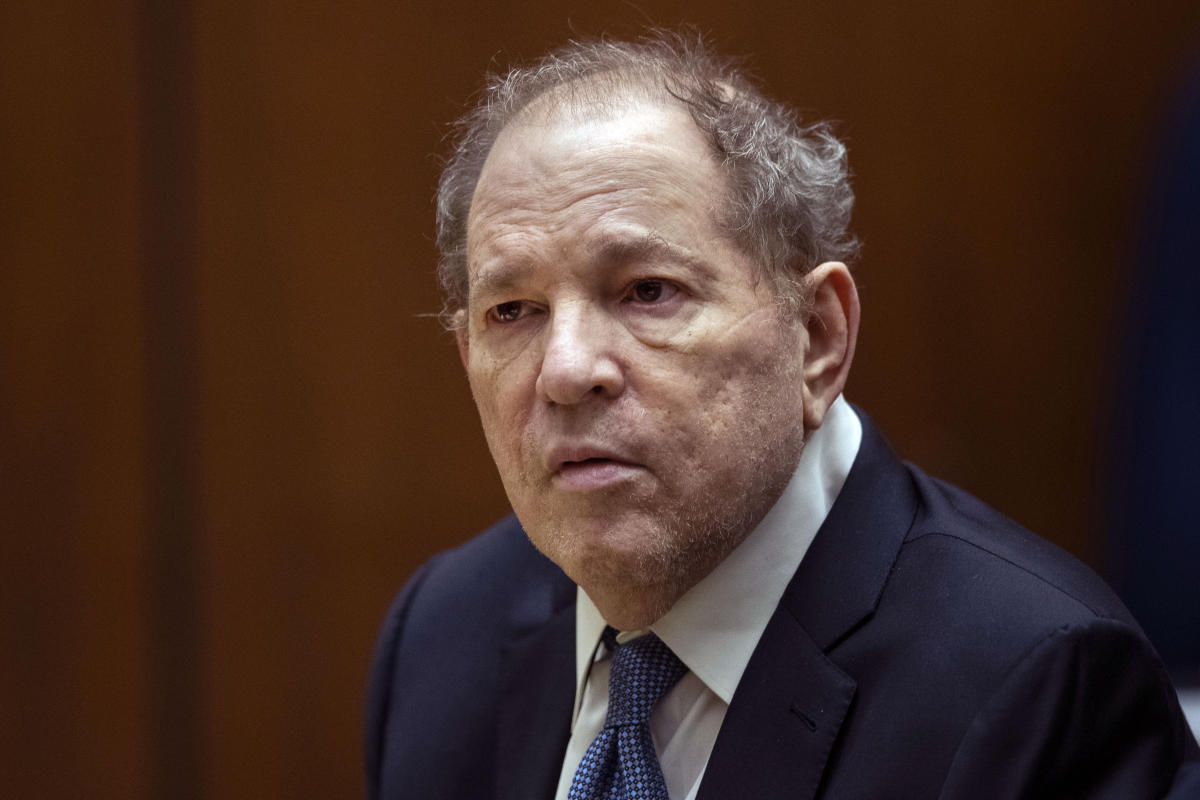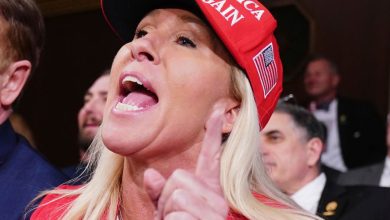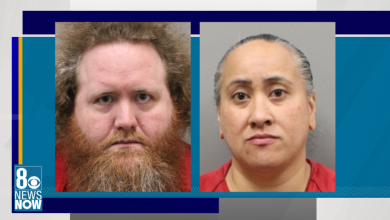New York appeals court overturns Harvey Weinstein’s 2020 rape conviction in historic #MeToo trial

NEW YORK (AP) — New York’s highest court on Thursday overturned Harvey Weinstein’s 2020 rape conviction, ruling that the judge in the landmark #MeToo trial prejudiced the ex-movie mogul with rulings “egregious” and inappropriate, including a decision to allow women to testify. on allegations that were not part of the case.
“We conclude that the trial court erroneously admitted testimony of alleged, uncharged, prior sexual acts against persons other than the complainants of the underlying crimes,” the court’s 4-3 decision said. “The remedy for these egregious errors is a new trial.”
The state appeals court’s ruling reopens a painful chapter in America’s record regarding sexual misconduct by powerful figures — an era that began in 2017 with a flood of allegations against Weinstein. His accusers could once again be forced to retell their stories on the witness stand.
The majority of the court stated that “it is an abuse of judicial discretion to allow unverified allegations of mere bad behavior that destroy the character of a defendant but shed no light on his credibility by in relation to the criminal charges brought against him.
In a scathing dissent, Justice Madeline Singas wrote that the majority was “whitewashing the facts to conform to a he-said/she-said narrative,” and said the appeals court was continuing a “disturbing trend of overturning jury guilty verdicts in cases involving sexual violence.
“Majority determination perpetuates outdated notions of sexual violence and allows predators to escape accountability,” Singas wrote.
Weinstein, 72, is serving a 23-year sentence in a New York prison after being convicted of criminal sexual acts for forcibly performing oral sex on a television and film production assistant in 2006 and rape in third degree for an attack on an aspiring actress in 2013.
He will remain incarcerated because he was convicted in Los Angeles in 2022 of another rape and sentenced to 16 years in prison. Weinstein was acquitted in Los Angeles on charges involving one of the women who testified in New York.
Weinstein’s lawyer, Arthur Aidala, said immediately after the ruling: “We have all worked very hard and this is a huge victory for all criminal defendants in the state of New York.”
Lawyers for the women who accused Weinstein in the New York case did not immediately respond Thursday.
Weinstein’s lawyers argued that Judge James Burke’s rulings in favor of the prosecution turned the trial into “1-800-GET-HARVEY.”
The overturning of Weinstein’s conviction is the second major setback for #MeToo in the past two years, after the U.S. Supreme Court refused to hear an appeal of a Pennsylvania court ruling rejecting Bill Cosby’s sexual assault conviction.
Weinstein’s conviction lasted more than four years, hailed by activists and advocates as a milestone, but dissected just as quickly by his lawyers and, later, by the appeals court when it heard arguments on the question in February.
The allegations against Weinstein, the once-powerful and feared studio chief behind Oscar-winning films like “Pulp Fiction” and “Shakespeare in Love,” marked the start of the #MeToo movement. Dozens of women have come forward to accuse Weinstein, including famous actresses such as Ashley Judd and Uma Thurman. His trial in New York attracted intense publicity, with protesters chanting “rapist” outside the courthouse.
Weinstein is incarcerated in New York at the Mohawk Correctional Center, about 100 miles northwest of Albany.
He maintains his innocence. He claims all sexual activity was consensual.
Aidala argued before the appeals court in February that Burke influenced the trial by allowing three women to testify about allegations that were not part of the case and giving prosecutors permission to confront Weinstein, claiming he had testified about his long history of brutal behavior. .
Aidala argued that the additional testimony went beyond the normally permitted details of motive, opportunity, intent or a common design or plan, and essentially put Weinstein on trial for crimes he was not responsible for. not accused.
Weinstein wanted to testify, but chose not to because Burke’s decision would have meant answering questions about more than two dozen alleged acts of misconduct dating back four decades, Aidala said. They included fighting with his film producer brother, overturning a table in anger, taunting waiters and shouting at his assistants.
“We had a defendant begging us to tell his side of the story. This is a he said, she said case, and he says “that’s not how it happened.” Let me tell you how I did it,” Aidala argued. Instead, jurors heard evidence of Weinstein’s past bad behavior that “had nothing to do with truth and veracity.” was simply ‘he’s a bad guy’.
Aidala also took issue with Burke’s refusal to dismiss a juror who wrote a novel involving predatory older men, a topic the defense attorney said was too similar to issues raised in the Weinstein case.
A lawyer for the Manhattan District Attorney’s Office, which prosecuted the case, argued that the judge’s decisions were appropriate and that the additional evidence and testimony he allowed was important in providing jurors with context about the Weinstein’s behavior and the way he interacted with women.
“The defendant’s argument was that they had a consensual, romantic relationship before and after the incriminating incidents,” argued appellate leader Steven Wu, referring to one of the women accused of assault. The additional testimony “just completely refuted that characterization.”
Wu said Weinstein’s acquittal on the most serious charges — two counts of predatory sexual assault and a first-degree rape charge involving actress Annabella Sciorra’s alleged rape in the mid-1990s – showed that the jurors were paying attention and were not confused or overwhelmed by the news. testimony.
The Associated Press generally does not identify people alleging sexual assault unless they consent to being named; Sciorra has spoken publicly about his allegations.
The appeals court agreed last year to take Weinstein’s case after an intermediate appeals court upheld his conviction. Before their ruling, the lower appeals court judges had expressed doubts about Burke’s conduct during oral arguments. One observed that Burke let prosecutors pile on “incredibly damaging testimony” from additional witnesses.
Burke’s term expired at the end of 2022. He was not reappointed and is no longer a judge.
In appealing, Weinstein’s lawyers requested a new trial, but only on the criminal sexual act charge. They argued that the rape charge could not be retried because it involves alleged conduct outside the statute of limitations.
___
Associated Press writer Dave Collins reported from Hartford, Connecticut.
yahoo





